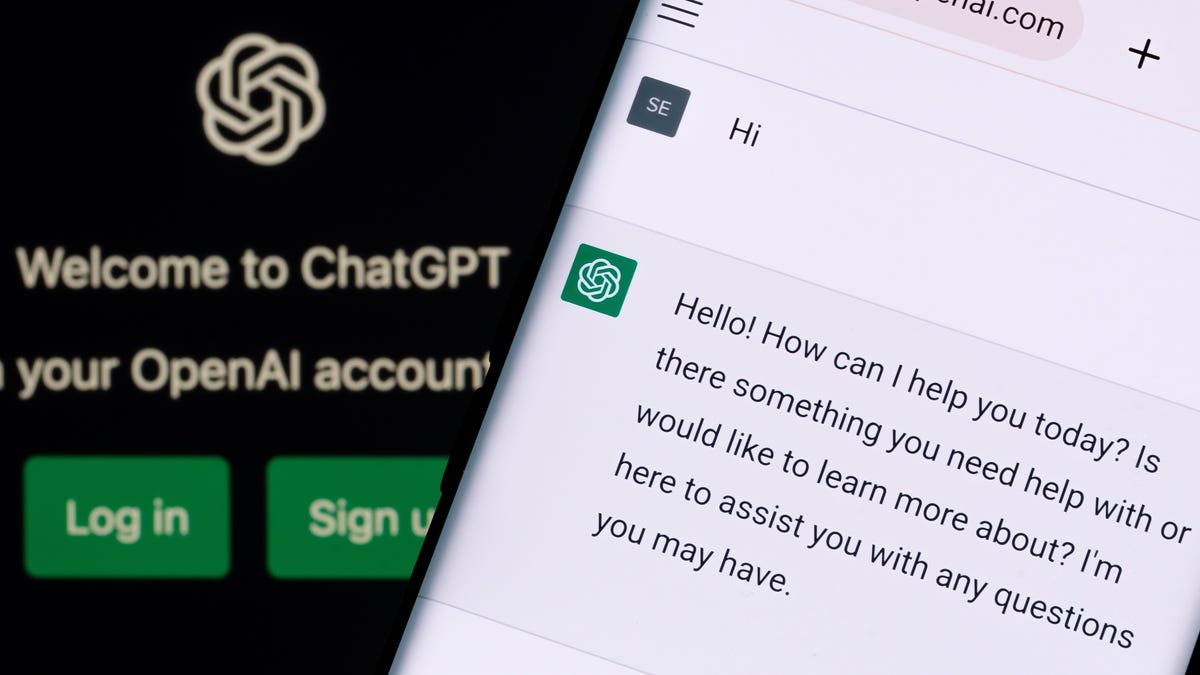Google DeepMind is evaluating the use of generative AI tools to act as a personal life coach, despite previous cautionary warnings about the risks of emotional attachment to chatbots.
The rapid development of AI technology, exemplified by OpenAI's ChatGPT, has raised concerns about the potential societal impacts and ethical implications, highlighting the need for responsible AI development and regulation to mitigate these risks.
A writer tries out an AI emotional support app for late-night chats and finds it unfulfilling and lacking the depth of real human connection.
ChatGPT, an expansive language model-based AI chatbot, achieved a 72% accuracy in clinical decision-making, demonstrating potential as a tool to augment medical practices; however, further research and regulatory guidance are necessary before clinical integration.
The use of AI tools, such as OpenAI's ChatGPT, is raising concerns about the creation of self-amplifying echo chambers of flawed information and the potential for algorithmic manipulation, leading to a polluted information environment and a breakdown of meaningful communication.
OpenAI is releasing ChatGPT Enterprise, a version of its AI technology targeted at large businesses, offering enhanced security, privacy, and faster access to its services.
OpenAI has proposed several ways for teachers to use its conversational AI agent, ChatGPT, in classrooms, including assisting language learners, formulating test questions, and teaching critical thinking skills, despite concerns about potential misuse such as plagiarism.
AI-powered chatbots like OpenAI's ChatGPT can effectively and cost-efficiently operate a software development company with minimal human intervention, completing the full software development process in under seven minutes at a cost of less than one dollar on average.
OpenAI, a leading startup in artificial intelligence (AI), has established an early lead in the industry with its app ChatGPT and its latest AI model, GPT-4, surpassing competitors and earning revenues at an annualized rate of $1 billion, but it must navigate challenges and adapt to remain at the forefront of the AI market.
OpenAI's ChatGPT is expanding its capabilities by adding voice and image-based functionalities, allowing users to have voice conversations with the chatbot and search for answers using images.
Using AI tools like ChatGPT can help you improve productivity, brainstorm ideas, and ask questions without fear of judgment in a professional context, according to Sarah Hoffman, VP of AI and machine learning research at Fidelity Investments.
Artificial intelligence-powered chatbot, ChatGPT, was found to outperform humans in an emotional awareness test, suggesting potential applications in mental health, although it does not imply emotional intelligence or empathy.
AI-powered chatbots like Earkick show promise in supporting mental wellness by delivering elements of therapy, but they may struggle to replicate the human connection and subjective experience that patients seek from traditional therapy.
OpenAI is exploring various options, including building its own AI chips and considering an acquisition, to address the shortage of powerful AI chips needed for its programs like the AI chatbot ChatGPT.
AI models trained on conversational data can now detect emotions and respond with empathy, leading to potential benefits in customer service, healthcare, and human resources, but critics argue that AI lacks real emotional experiences and should only be used as a supplement to human-to-human emotional engagement.
OpenAI, the creator of ChatGPT, is partnering with Abu Dhabi's G42 to expand its generative AI models in the United Arab Emirates and the broader region, focusing on sectors like financial services, energy, and healthcare.
OpenAI is granting ChatGPT Plus and Enterprise subscribers access to its AI image generator, DALL-E 3, although ethical concerns and risks regarding harmful content remain.
Recruiters have noticed an increase in job applicants using OpenAI's ChatGPT to help with their job applications, but caution that relying solely on AI-generated materials can hurt their chances of getting hired. While using ChatGPT to refine applications can be beneficial, it's important for applicants to review the AI-generated materials for accuracy and add a human touch to their applications.
OpenAI's GPT-3 language model brings machines closer to achieving Artificial General Intelligence (AGI), with the potential to mirror human logic and intuition, according to CEO Sam Altman. The release of ChatGPT and subsequent models have shown significant advancements in narrowing the gap between human capabilities and AI's chatbot abilities. However, ethical and philosophical debates arise as AI progresses towards surpassing human intelligence.
Anthropic AI, a rival of OpenAI, has created a new AI constitution for its chatbot Claude, emphasizing balanced and objective answers, accessibility, and the avoidance of toxic, racist, or sexist responses, based on public input and concerns regarding AI safety.
Nonprofit organization LAION has launched the Open Empathic project, which aims to equip open-source AI systems with empathy and emotional intelligence by training them to understand human emotions, using audio clips submitted by volunteers. The project's goal is to create AI that can go beyond understanding words and grasp nuances in expressions and tone shifts for more authentic and empathetic human-AI interactions. However, the accuracy and bias of emotion-detecting AI systems remain significant challenges.
